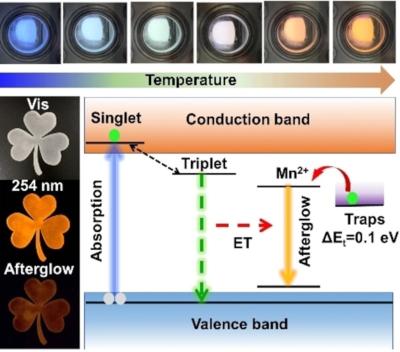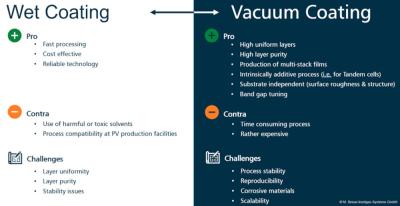Perovskite-Info weekly newsletter
Published: Tue, 12/06/22
The Perovskite-Info newsletter (December 6, 2022)
Cannot read this? View it online here
Researchers develop unique perovskite solar cells for harvesting energy from artificial indoor LED light sources
Researchers at the Indian Institute of Technology Mandi, National Institute of Solar Energy (NISE) and University of North Texas have reported perovskite-based solar technology that can generate power when irradiated with light produced in household light sources like LED or CFL.
The results of this research could support IoT technology, which is being increasingly used in mobile phones, smart homes, and other applications that require various kinds of real-time data. These IoT devices are required to run independently without relying on electrical grids for power supply; primary and secondary batteries are currently used to power such devices. All batteries, irrespective of their kind, have a finite lifespan and are neither cost-effective nor eco-friendly.
Researchers develop efficient perovskite-based afterglow material
An international research group, led by Dr. Yang Bin from the Dalian Institute of Chemical Physics (DICP) of the Chinese Academy of Sciences (CAS), has developed cadmium (Cd)-based perovskite single crystals with long afterglow and high luminous quantum yield, and investigated its afterglow luminescence dynamics mechanism.
Afterglow materials have the ability to store multiple radiations such as visible photons, ultraviolet rays, and X-rays. They are widely used in display, biological imaging, anti-counterfeiting technology, and data storage. However, traditional all-inorganic phosphors, such as oxide, sulfide, and nitride-based afterglow materials, have high lattice energy and usually need to be produced by high-temperature processing (>1000°C), which brings considerable energy consumption and safety risks to production and preparation.
Solutions for perovskite material vacuum deposition by MBRAUN
This is a sponsored post by MBRAUN
The potential of perovskites
Over the past decade, perovskites solar cells have attracted tremendous interest from the academic community, becoming a leading photovoltaic trend. Advances in the fundamental understanding of perovskites’ chemical and physical processes made them an attractive class of material for many researchers. In parallel, engineering developments on the architecture and fabrication methods of perovskite-based solar cells are becoming increasingly interesting for the PV industry.
Processing of perovskites
In general, three main types of perovskites processes can be distinguished – the fully vacuum-processed, the fully ambient processed and the hybrid type. For each process, MBRAUN can offer dedicated equipment solutions which will be showed in outline in the following paragraphs.
On one hand vacuum-based methods convince due to high-quality thin films, leading to the best device performance but are but are also characterized by comparatively high investment and operating costs. On the other hand, solution-processing techniques, like spin coating or slot-die coating also produce good-quality layers but excel at significantly lower investment and operation costs.
Comparison of wet and vacuum coating
Researchers examine how molybdenum ditelluride could increase carrier generation in perovskite solar cells
Researchers from South Korea's Sungkyunkwan University (SKKU) have found that molybdenum ditelluride could increase carrier generation in perovskite solar cells.
They simulated a tandem solar cell with two absorbers based on methylammonium lead triiodide (CH3NH3PbI3) – a perovskite with high photoluminescence quantum yield – and molybdenum ditelluride (MoTe2), which is known for being naturally p-doped, with cascaded bandgaps to absorb a wider solar spectrum. The team determined that its efficiency could exceed 20%.
Metalgrass LTD
9 Har Tsin St.
Kfar Sava Hasharon 4430809
ISRAEL
Unsubscribe | Change Subscriber Options






